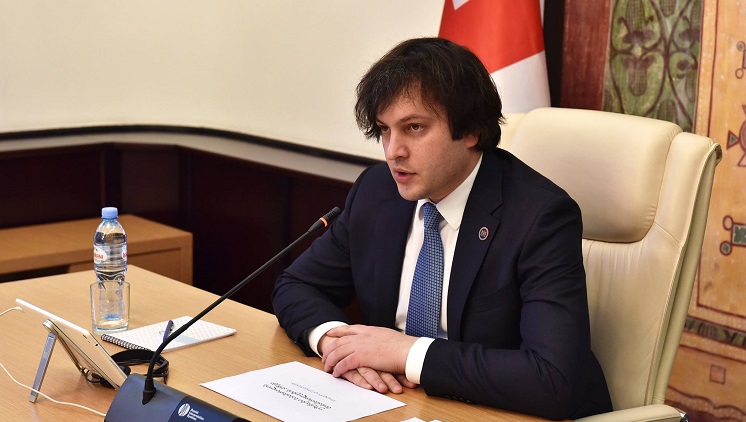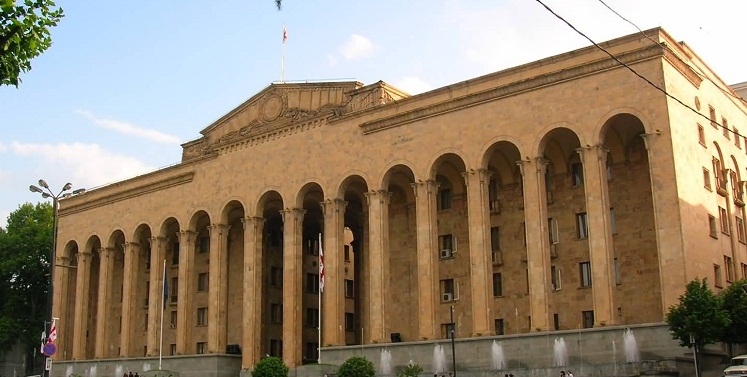Justice Minister says bill on selection of judges by ruling party MPs meets int’l standards

Georgian Parliament Speaker Irakli Kobakhidze and six other ruling party legislators are authors of a bill which dictates the selection and appointment procedures of Supreme Court judges. Photo: Irakli Kobakhidze’s press office.
Georgian Justice Minister Thea Tsulukiani says that a bill drafted by Parliament Speaker Irakli Kobakhidze and six other ruling party MPs fully meets the recommendations of the Venice Commission of the Council of Europe.
The bill, which has been criticised by NGOs and opposition, was approved in its first reading earlier today [two readings are left for the final approval].
Ruling party MP Archil Talakvadze says that the bill will be supported by the Georgian Dream legislators when it is presented for the final vote procedure.
The bill was made after the decision of the High Council of Justice, an independent body which is responsible for the selection and appointment of judges in Georgia, to name 10 candidates for the Supreme Court of Georgia in December 2018.
NGOs and several members of the ruling party stated then that several names on the list were connected with biased judiciary under the United National Movement leadership.
 Parliaments' Legal Affairs Committee has supported the bill.
Parliaments' Legal Affairs Committee has supported the bill.
The ruling party addressed the Venice Commission for help to write the bill which would respond to the demands of all parties regarding the selection and appointment procedures of the Supreme Court judges.
The commission accepted the request.
How does the bill read?
The bill offers a five stage selection and appointment procedure.
- First stage: The High Council of Justice, an independent body composed of 15 members and which is responsible for the selection and appointment of judges, will receive applications for the Supreme Court Judges. A candidate must be over 30, with a higher education in law [MA or an equal degree at least], with working experience and knowledge of the national language to run for the Supreme Court judge. A candidate must have at least five-year experience of working as a judge.
- The second stage: The High Council of Justice will conduct a closed vote to select the best candidates. If one or two seats are vacant, at least six candidates must be left in the pool.
- The third stage: A public hearing will take place for successful candidates. During the hearing members of the High Council of Justice will ask questions to candidates individually and score them.
- Fourth stage: Remaining candidates are voted on by the High Council of Justice. A candidate will be presented to parliament for vote if he/she receives the support of two-thirds of the council. If any of the council member thinks that the approved candidate is not suitable for the future position, he/she is allowed to send a letter to parliament and inform the legislators regarding his/her position.
- The fifth stage entails the voting procedures in parliament.
NGOs believe that many of the members of the High Council of Justice are part of a ‘clan’ which uses levers to help desirable candidates appear on the Supreme Court.
NGOs also say that a council member, who is allowed to apply for office, has access to opponents’ documents and information, which puts him/her in a privileged position.
Georgian Public Defender Nino Lomjaria says that the bill does not respond to challenges and intends to send her own recommendations to the Venice Commission and OSCE.
 Tweet
Tweet  Share
Share